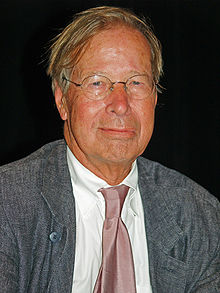
Philosopher and Law theorist Ronald Dworkin died today. A cursory look at his Wikipedia Page will let you know the countless accolades and accomplishments in his ambitious and productive life. I first encountered Dworkin and his works in a fantastic graduate course in Yeshiva University's Revel. In a class full of abstruse and unnecessarily densely written academic articles on the nature of Law, Dworkin's integrity, brilliance, and clarity separated him from above the book. His works, encapsulated in his most famous and most systematic book Law's Empire, attempts to infuse morality back into a theory of law. This central point requires exposition, but essentially, Dworkin fought against one of his rivals, John Rawls. Rawls, and his acolytes, largely adhered to a theory of law dubbed positivism. Though many disagree with the exact definition of positivistic law, essentially the theory assumes that law emerges only of established law, or written law. As my professor simplified it, positivists see the creation and understanding of law as a closed system, almost a mechanical, mathematical system in where there are always rules as to how decide even complex cases. Essentially, positivists conclude that morality cannot and should not play any role in how we actively create law. The body of law we have, as was passed down, contains everything in it so that we don't need to outside to the realm of morality to decide law.
What this amounts to is somewhat the divide between someone like Justice Scalia, and someone Like Justice Ginsburg, or the republican vs. democratic approach to deciding law. Scalia, as is his wont, only cares about the original intent of the founders, regardless of the morality of the case. Dworkin would contest, convincingly so, that no clean divide between personal or communal morality can be separated from how we read the constitution or any case. Dworkin often pointed out the heavy ambivalence in the act of reading, an act that inherently brings to the table all the personality of a person. This doesn't do full justice to Dworkin's system of thought, but it highlights one of his greatest contributions to intellectual and cultural conversation - morality, and the nature thereof. As one of the cited, quoted, and prolific law theorists in our generation, Dworkin influenced countless next generation lawyers and law theorists, and also how we think about the nature of Law. Not a meager task for any thinker, but, and this speaks to Dworkin's ability, he appeared to never back down from any challenge. He took a theoretical world, one wholly disconnected from everyday normal life, into a system of law rooted and grounded in actual life, not in the semantic subtleties of the ivory tower.
Regardless of the power of our Supreme Court Justices, Dworkin did not simply report on their decisions, he fought with their decisions. Even after Obamacare went through, Dworkin sticked to his guns in the sense that he found the arguments largely inane, even the arguments for Obamacare. He was also one of the most intelligent and outspoken against Citizen's United, the case which ridiculously gave a corporation the status of a human being in regards to free speech. While many saw this as a travesty of law, Dworkin attacked it as law and undermined the intelligence of that decision like no one else. He didn't care about controversy, just integrity, and no one felt outside the scope of his critical abilities. Outside the realm of his obvious expertise he tackled topics like morality and happiness, abortion, the rights of all people, evolution in schools, the rights of LGBT, and affirmative action. In fact, looking back, there appeared little he could not talk, persuasively, about. He largely stood outside of the system, unafraid to condemn anyone, whether president, or justice, or NSA, or pretty much anyone. It doesn't seem far fetched to say that as one of the last public American Intellectuals, he kept us in check, acting as the liberal check on an increasingly unregulated market policy, and the apparent dismantling of the constitution by the recent Republican court.
On a more personal note, I looked forward to a new Dworkin article the same way some of us wait for that concert you are just dying to see. Regardless of the issue, reading Dworkin makes you feel smarter, challenged, and yes, even understood. The clarity with which he was able to see through the murkiness of politics was a rare trait in a world of academics that either wither in their corner of specialization or sell out to the more corporate society. Dworkin fought his beliefs, no matter the situation.
He will be missed.
You can read many of his articles here.